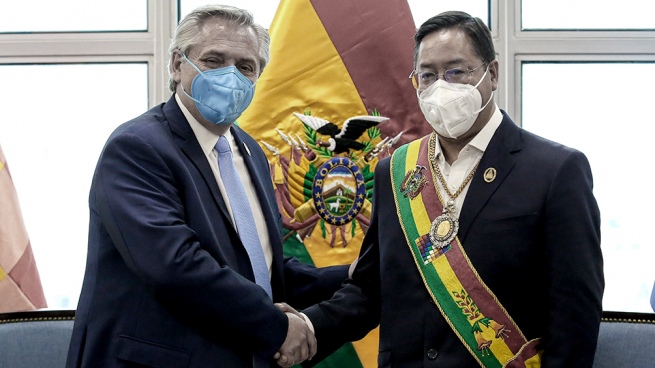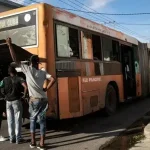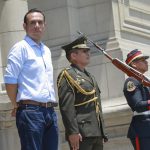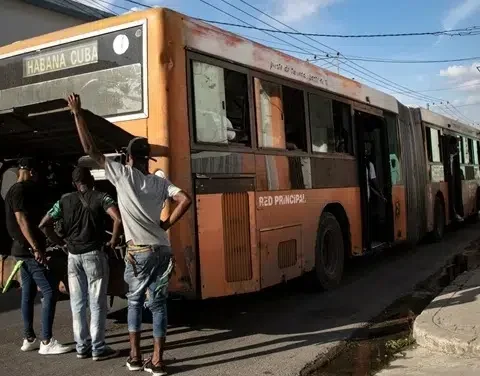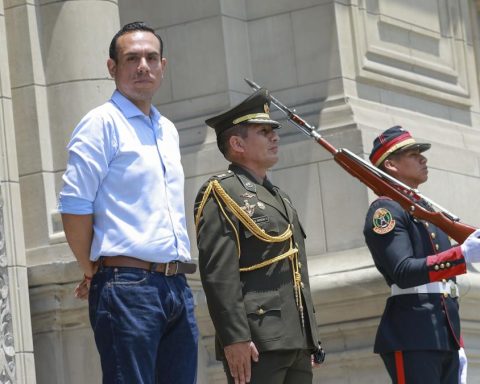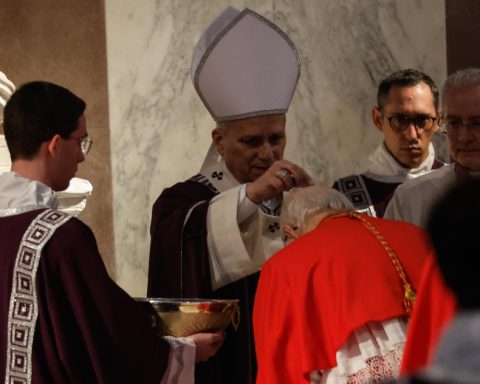President Alberto Fernandez and his counterpart from Bolivia, louis arcewill seek this Thursday to reach an agreement in Buenos Aires on the volumes and price of natural gas that the neighboring country will be able to sell to Argentina to face the peak of local demand in the winter months.
“The presidents of Argentina and Bolivia decided to lead the negotiation for the provision of gas for the winter themselves because it has been stalled for months and represents a strategic and essential resource for our country,” Foreign Minister Santiago Cafiero told the Télam agency, on the occasion of the one that referred to the visit that Arce will make this week to Argentina.
The technical teams of the state-owned Bolivian Fiscal Petroleum Deposits (YPFB) and Argentine Energy Integration (IEASA) have been discussing since the end of 2021 the sixth addendum to the agreement signed in 2006 -for 20 years- by former presidents Néstor Kirchner and Evo Morales.
The situation with the neighboring country in terms of gas supply is due to the sharp drop in production levels in Bolivian deposits.
The first addendum to the original agreement was signed in 2010, due to difficulties in meeting committed deliveries.
“The presidents of Argentina and Bolivia decided to lead the negotiation for the supply of gas for the winter themselves because it has been going on for months and represents a strategic and essential resource for our country” santiago cafiero
In December 2020, both countries agreed for the peak of Argentina’s consumption during the winter of last year, shipments of 14 million million cubic meters per day (Mmm3/d), after during the same period of 2020 it sent up to 21 Mmm3/d, which represented an injection decrease of 30%.
Last December the negotiation with a proposal of the Arce government to deliver to Argentina volumes of up to 9 Mmm3/d.
On the Argentine side, the state firm IEASA asked to increase volumes, which led to a lack of understanding that forced the extension of the addendum that expired on December 31 to January 31, and then to March 31.
Official sources pointed out in recent days -before the deadline for the extension- that “unfortunately the pronounced decline in Bolivian gas production means that YPFB has had to significantly reduce its injection commitment for the winter.”
With the negotiation bogged down, the presidents will assume this Thursday the search for an agreement that allows Argentina to guarantee an adequate supply to its demand and avoid having to replace that gas with liquid fuels or Liquefied Natural Gas (LNG) that are much more expensive.
In figures, the price of gas that Argentina proposed to Bolivia in December and January for 2022 was about US$ 8 per MMBTU, an amount that Bolivia asked to re-discuss taking into account the escalation of international gas and LNG prices that is registered since the end of last year, and which ended with the Russian invasion of Ukraine
For this year The Secretary of Energy estimates that in the winter season that covers the months of May to September, national gas will represent 73% of the demand with 17,995 MMm3, and that 2,142 MMm3 will be imported from Bolivia that would cover 9%.
In addition, it will be necessary to import 4,406 MMm3 equivalent of LNG to cover the remaining 18% of the total projected demand.
Last week, IEASA finalized the purchase of the first LNG vessels to regasify at the Bahía Blanca and Escobar terminals, at average prices of US$40 per MMBTU.
This search for an understanding “at the highest level” in the region had an initial step on Monday with the visit of the President of Chile, Gabriel Boric, to the country.
The previous week, the Minister of Economy, Martín Guzmán, held a meeting in Paris with the Minister of Energy of Brazil, Bento Costa Lima, to analyze the bilateral situation.
Next Friday both officials will meet again in San Pablo, to resume the analysis of energy integration, as confirmed on Monday by the Argentine ambassador to Brazil, Daniel Scioli.
One of the ideas put on the table is the possibility that Argentina may have a few million cubic meters more during the winter from the Mercosur’s largest partner than the production they acquire from Bolivia, among other issues.
